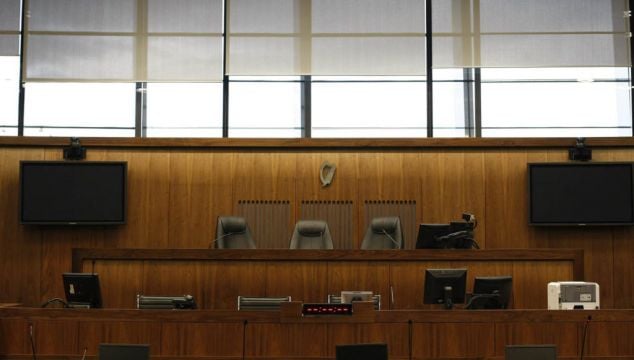A criminal on trial accused of attempting to pervert the course of justice was "trying to secure justice" in his attempts to persuade a witness not to give evidence at garda killer Aaron Brady's murder trial, a barrister has told the Special Criminal Court.
Padraig Dwyer SC told the three-judge, non-jury court that his client, Dean Byrne, genuinely believed that witness Daniel Cahill was going to give false evidence at Brady's murder trial. He said that in that context, any attempt by Mr Byrne to persuade the witness was not unlawful and a citizen in his position has a "moral obligation to prevent an injustice being done".
Prosecution counsel Lorcan Staines SC said that any interference in the justice process by a private citizen, even where the motive is benign, is an intentional act which interferes with the course of public justice.
He added: "There are no circumstances in which an attempt to persuade a witness in a criminal trial not to give evidence can take place without an intent to pervert the course of public justice. This is so because justice can only take place in the courts or the office of the Director of Public Prosecutions."
Dean Byrne (30) from Cabra Park, Phibsborough, Dublin is on trial accused of conspiring with Aaron Brady in Mountjoy Prison between April 8th, 2020 and June 22nd, 2020 to persuade prosecution witness Daniel Cahill not to give evidence at Brady's murder trial, a course of conduct which had a tendency to and which was intended to pervert the course of justice.
In August 2020, Brady (33) formerly of New Road, Crossmaglen, Co Armagh was convicted by a jury of the murder of Det Gda Adrian Donohoe during a credit union robbery at Lordship, Bellurgan, Co Louth on January 25th, 2013.
Following the close of the prosecution case on Wednesday, Mr Dwyer asked the court to dismiss the charge against Mr Byrne on the grounds that the indictment is unclear and there is a lack of evidence that he did anything wrong.
In his submissions today, Mr Dwyer said the indictment against his client accuses him of attempting to "persuade" a witness not to give evidence. The Oxford English Dictionary, he said, defines "persuade" as the use of "reasoning and argument to make someone do or believe something." The use of reason and argument, Mr Dwyer said, is not unlawful.
Mr Dwyer said it is an "undisputed fact" that his client had a genuine belief that Daniel Cahill was going to perjure himself at Aaron Brady's trial.
A person who seeks to persuade a witness not to give false testimony is "trying to secure justice, not pervert justice. He is actually doing the opposite, saying it would be wrong to corrupt the court process by telling lies," Mr Dwyer said.
In this case, he said, there is no evidence of how Mr Cahill was to be persuaded. He said neither Mr Byrne nor Aaron Brady could have been the ones doing the persuading because they were both in Mountjoy prison and Daniel Cahill was in New York.
Mr Dwyer said the indictment is difficult to understand as it is "not sufficiently precise to enable a jury to properly grapple with the allegation of wrongdoing. What the wrongdoing is, is difficult to assess."
He said it is not alleged that his client used unlawful means to persuade Mr Cahill not to give evidence. It does not allege that Mr Byrne threatened, bribed or interfered with Daniel Cahill or that he tried to put him in fear, counsel said. There was also no evidence of who was "doing the persuasion" or how they were doing it.
Mr Staines said he rejected the claim that all the evidence suggests Mr Byrne genuinely believed Mr Cahill was going to perjure himself. Counsel drew the court's attention to the language Mr Byrne used in one voice message in which he called Mr Cahill a "f**king rat c**t, filthbag rat bastard of a thing."
He said the jury would have to consider what Mr Byrne meant by those words and his "true feelings" about Mr Cahill giving evidence against Brady.
Mr Staines said there is evidence that Mr Byrne is serving a long prison sentence and that he is a "resourceful" prisoner capable of obtaining drugs and mobile phones for himself and other people.
A jury is entitled to conclude that Dean Byrne was just the sort of inmate who would be recruited by Aaron Brady to engage in a criminal enterprise," he said.
Mr Staines said there is also evidence that Mr Byrne circulated Mr Cahill's Garda statement to members of Mr Cahill's family in a bid to place pressure on him.
It would be open to a jury to find that Mr Byrne knew that disseminating the statement was a "serious contempt of court, perversion of justice and that he knew such an act in the context in which it was done was unlawful, improper and corrupt," counsel said.
Mr Staines will continue his submissions to the court on Thursday.







